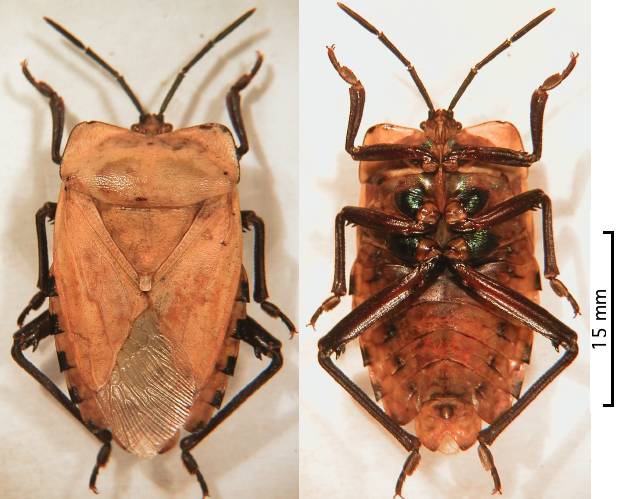
list of species :
Pycanum alternatum (Lepeletier & Serville, 1828) type species
Distribution: Borneo, Myanmar, China (Yunnan), E. Indies, India (Hindustan), Indo-China, Indonesia (Bangka I., Belitung I., Nias I.), Java, Malay Penninsula, Moluccas, Philippines, Sumatra, Vietnam.
Pycanum griseum ✝︎ Piton, 1940
Distribution: France.
Pycanum occidentale Ghate, More & Magnien, 2020
Distribution: India (Maharashtra).
Pycanum ochraceum Distant, 1893
Distribution: Bhutan, Myanmar, China (Guangxi, Guizhou, Xizang, Yunnan), India (Assam, Megharlaya, Nagaland Sikkim, West Bengal), Indo-China, Vietnam.
Pycanum oculatum Jensen-Haarup, 1931
Distribution: Java.
Pycanum ponderosum Stål, 1854
Distribution: Myanmar, India (Assam, Sikkim), Malay Penninsula, Sri Lanka, Vietnam.
Pycanum pretiosum Stål, 1854
Distribution: Moluccas, Malay Penninsula (Malaya), Philippines.
Pycanum vanvollenhoveni ✝︎ Piton, 1940
Distribution: France.
Comments: This genus can be divided in three groups, the ochraceum group, the alternatum group and the extinct species group.
The first, characterized by the straight vesica of the male phallus, consists of occidentale, ochraceum and ponderosum. They are fairly easy to identify by external characters.
The second group, characterized by a bisinuate vesica of the male phallus, consisting of alternatum, oculatum and pretiosum, is much more tricky. Specimens of this group display a large variety of pronotum shapes, colour (particularly the paratergites which can be bicolor or unicolor), from brownish to resplendent green or deep purple, and size (from less than 20 mm to more than thirty), across its area of distribution. On the contrary, it is impossible to find the slightest variation in the male genitalia, which look all the same.
Regarding the third group it seems obvious from their original description that they are not belonging in this genus, and most probably not in Tessaratomidae at all. They look much more like ordinary Pentatomidae
references:
Amyot C. J. B. & Serville M. J. G. 1843